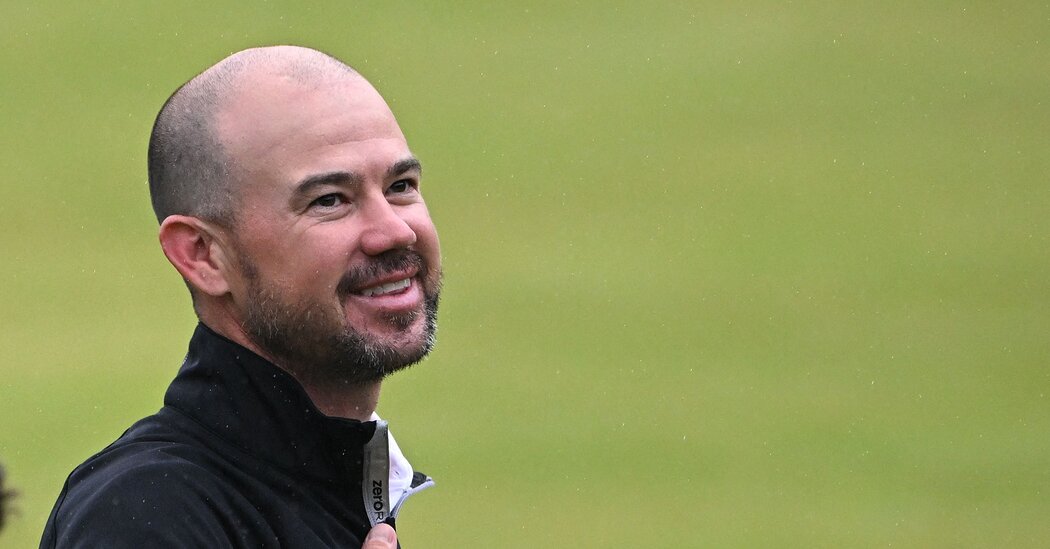
In 2023, Brian Harman came out of nowhere to win the British Open by six strokes.
Harman, a left-hander, had won only twice on the PGA Tour since turning professional in 2009 — the John Deere Classic in 2014 and the Wells Fargo Championship in 2017. And in the majors, he had posted just two top 10s: A tie for second in the 2017 U.S. Open and a tie for sixth in the 2022 British Open.
With this year’s Open, the final major of the season, starting on Thursday at Royal Troon in Scotland, Harman, 37, reflected recently on winning the claret jug in 2023 and his slow preshot routine.
The following conversation has been edited and condensed.
Where has the claret jug been these last 12 months?
It’s been kind of everywhere. Georgia-Ole Miss game, I got it on the field at halftime. I had my family there, probably my favorite experience I had with it. I took it up to Augusta National. Mostly, it’s been here [Georgia] at the house.
What strikes you when you think back to your victory?
I haven’t reflected on it that much. I’m not just getting started in my golf career. I’m trying to look forward and try to take advantage of the time that I’ve got. But there will be a time when I sit down and count them all up.
Everything was going so slow all weekend. You want time to go by so fast, and it just doesn’t. It’s a really hard thing to manage.
Did winning the Open change your perception of who you are and what kind of player you can be?
It certainly lets me know that I’m capable of doing really big things in golf, and I performed pretty well at the Ryder Cup. I’ve played on some big stages now, and I feel comfortable doing it. I feel like I can have a nice back half of my career.
Were you not satisfied with the first half?
I was certainly frustrated with how my career had gone. I’d had some stretches where I felt like I played some good golf, but never as good as I’ve played the last couple of years.
How did you start the routine where you waggle so much before hitting the ball?
When I first got on the tour, I was probably one of the five to eight fastest guys on tour. I talked to Lucas Glover [a former U.S. Open champion] who was kind of my big brother. He’s a fast player. He told me, “If I could have done it over, I probably would have slowed down a little bit.”
I looked back on some of my rounds, and I felt I was hitting two or three shots a day before I was really ready to go. So I said, “I’m not going until I’m ready,” and it’s evolved to something that takes too long.
You feel it takes too long?
I’m not crazy about it. I’ve been able to look at my numbers, and I was one of the slowest guys all of last year and the first part of this year. I’ve made some changes in the preshot, trying to get it to where at least it’s on par with the tour. I don’t think I’ll ever be a fast player again, but I also don’t want to be a nightmare to watch. And I don’t want to be no fun to play with.
Do you have any specific goals for the rest of your career?
I never kept count in my head as far as what I wanted to do when it is all said and done. I’ve had a nice mind-set the last couple of years where I have tried to use whatever talent I have to figure out where the holes in my game are and making plans to make those better.
What’s it going to feel like to give back the claret jug?
It’s going to be tough. It’s been a treat to have that thing for a year, that’s for sure.





